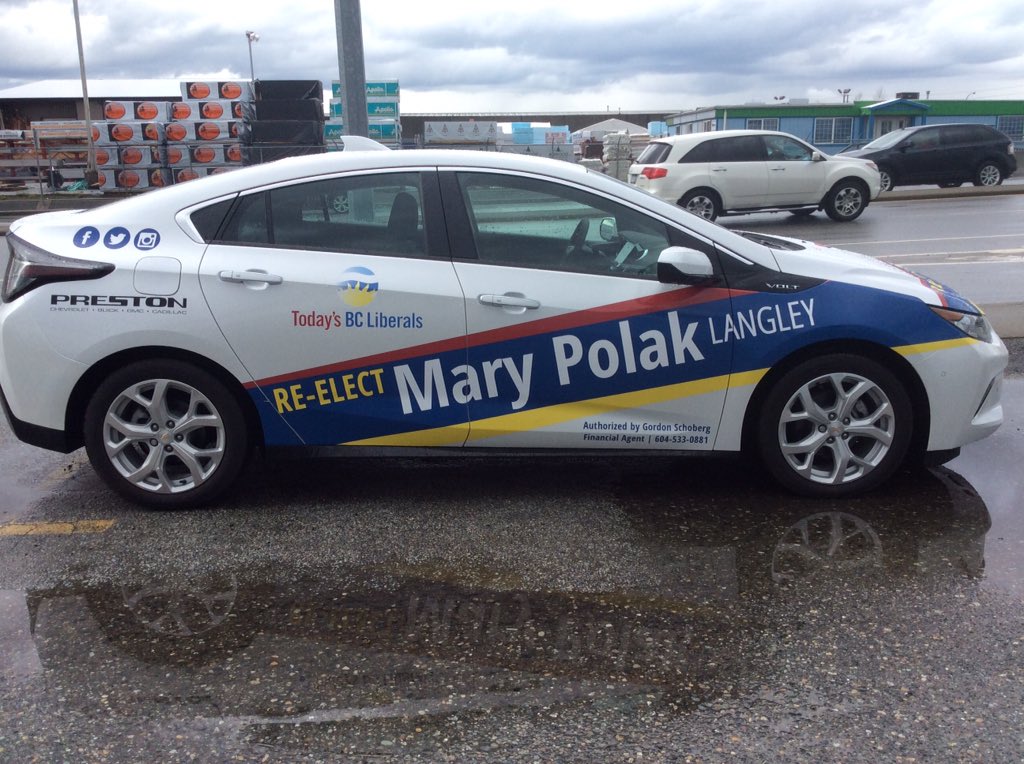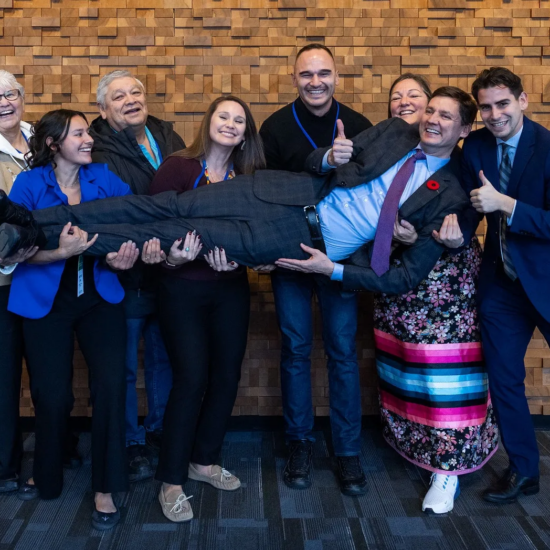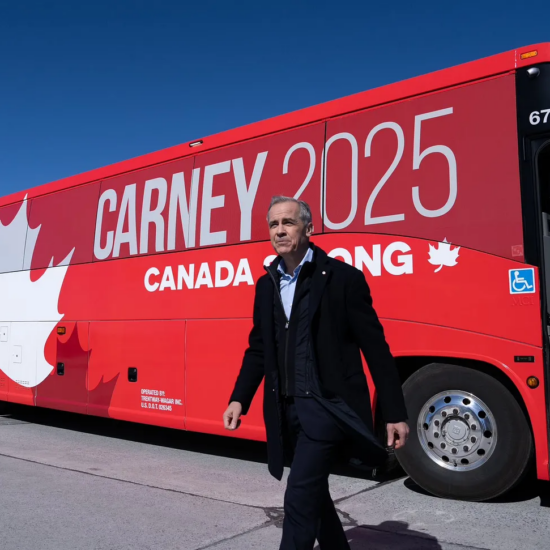
Bob Mackin
The BC Liberal backroomer who was caught charging bottles of scotch to taxpayers while he chaired Kwantlen Polytechnic University is the financial agent for Mary Polak’s re-election campaign in Langley.
Gord Schoberg is also a local government lobbyist with FortisBC, the natural gas company that donates to the BC Liberals and received environment minister Polak’s green light last August to build the $520 million pipeline to the controversial Woodfibre LNG plant near Squamish. Schoberg was listed on Fortis’s provincial lobbying registration in 2010 and 2011. The only municipality in B.C. with a lobbyist registry is Surrey, but that is limited to land development.

Gord Schoberg (LinkedIn)
A Tweeted photograph of a Preston GM-sponsored Polak campaign vehicle shows Schoberg’s name as the campaign’s financial agent. theBreaker revealed on April 3 that another GM dealer, Dueck, donated the use of four vehicles to three Liberal candidates and also supplies Premier Christy Clark with a party-leased Buick Enclave SUV.
Schoberg’s formal title with FortisBC is senior manager, municipal and aboriginal relations. He is a veteran BC Liberal and Surrey First operative. Schoberg, who chaired KPU from 2012 to 2014, was named to the KPU board in 2008 while he was president of then-Transport minister Kevin Falcon’s Surrey-Cloverdale BC Liberal riding association. In 2013, Schoberg was the financial agent for Polak and Peter Fassbender and listed his fortisbc.com email address on the official financing report submitted to Elections BC.
“FortisBC does not second staff for political campaigns,” Fortis spokeswoman Amy Bunton wrote in an email to theBreaker. “FortisBC staff are free to participate as they see fit for any political campaign on their own time.”
Bunton did not respond to clarify whether Schoberg’s work on Polak’s campaign is being treated as a donation of services to the Liberals.
Elections BC’s database shows that Fortis donated $186,024 to the Liberals through 2016 and $69,340 to the NDP.
Schoberg did not return theBreaker’s calls to his Fortis office or his mobile phone. Nobody answered the phone at Polak’s campaign office and nobody responded to theBreaker’s voice mail message.
In 2015, Schoberg pledged to pay back $4,000 in expenses, including $180 for the two Glenfiddich scotch bottles, after an internal review by the Advanced Education ministry. Surrey Liberal MLA Amrik Virk was KPU vice-chair under Schoberg and shuffled out of the Advanced Education Ministry and into Citizen Services, the ministry that handles government procurement, among other duties.

Polak’s Preston vehicle (@takesthelane)
The Fortis Eagle Mountain-Woodfibre Gas Pipeline would feed the planned liquefaction plant near Squamish. Woodfibre LNG is vital for the BC Liberals’ face-saving LNG spin. It is the only export terminal that may be built in B.C. before 2020. Clark campaigned in 2013 on three plants built by 2020, despite Russia, Qatar and Australia dominating the global market. Since then, the global oil and gas glut has delayed B.C.’s ambitions.
The $520 million FortisBC pipeline project would generate 832 person years of employment in construction, but would employ only 10 workers once it is operating.
Despite Clark’s unabashed optimism, there remain major global headwinds for a made-in-B.C. LNG industry.
The Fortis plan to ship 800,000 tonnes of LNG a year from its Tilbury plant in Delta to Hawaii fell through last summer when the Aloha state nixed a public utility’s takeover by Florida’s NextEra. The proposal conflicted with the Hawaii government’s long-term goal to shift from fossil fuels to wind and rooftop solar.
In March, Japan’s Resources Energy Inc. consortium cited depressed gas prices for scrapping its plan to build an LNG terminal in Cook Inlet, Alaska. It would have exported 1 million tonnes of LNG a year to Japan, half the amount contemplated by Woodfibre LNG.











